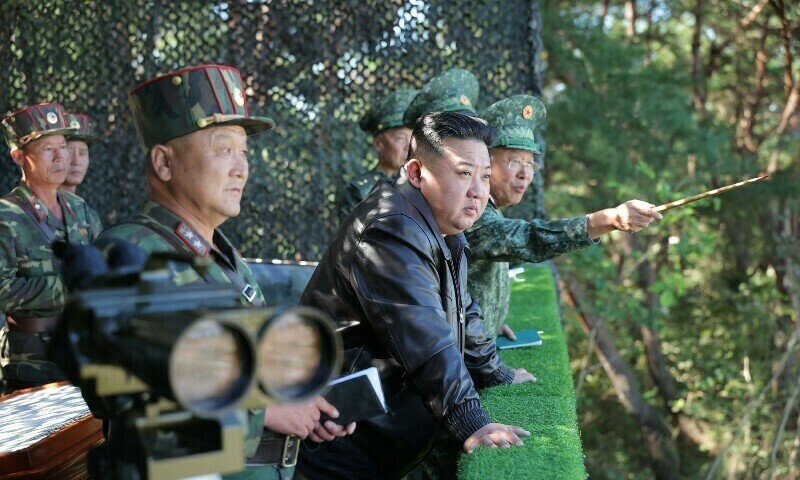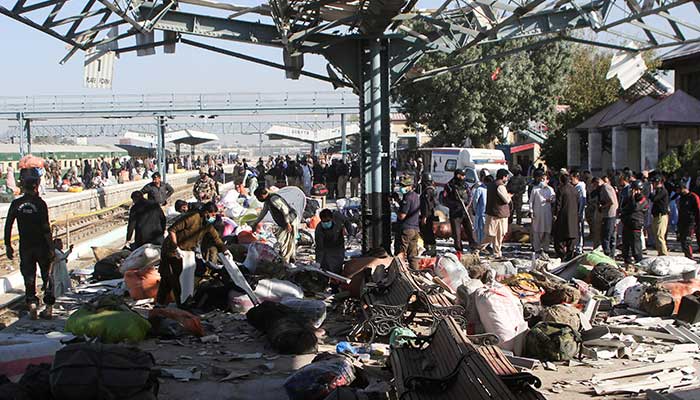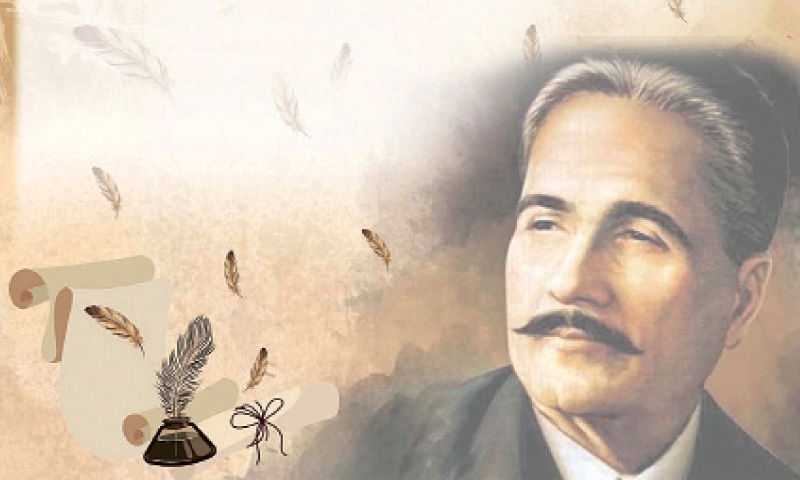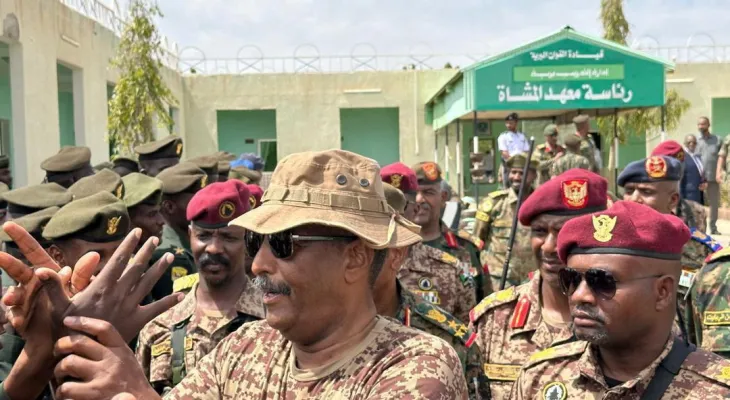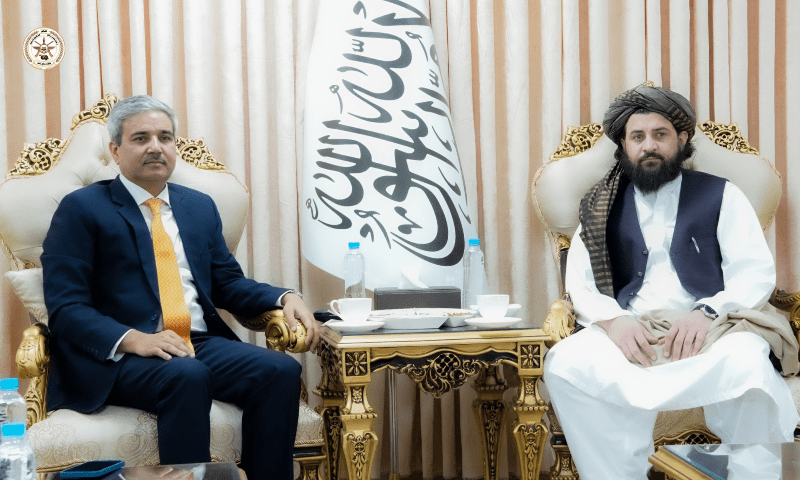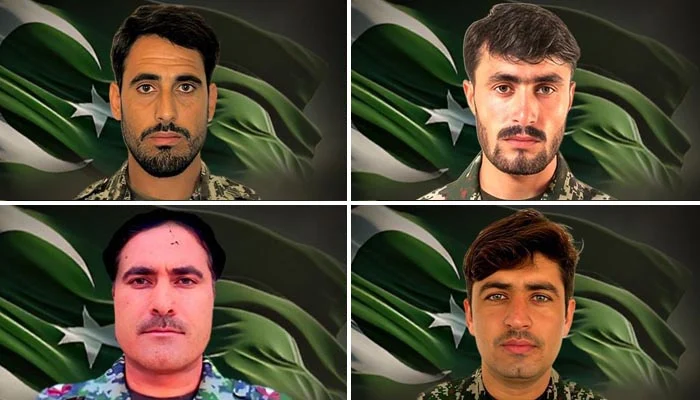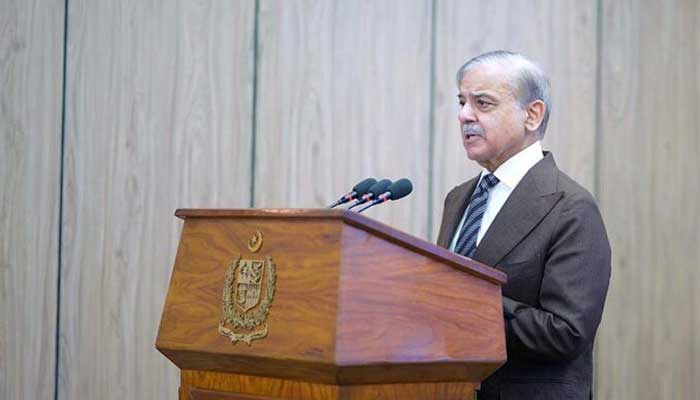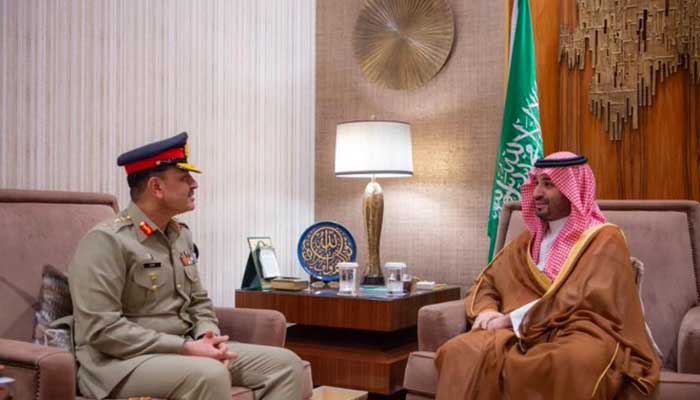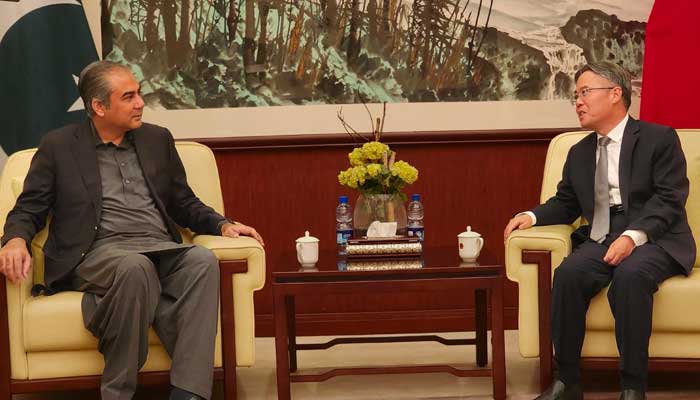QUETTA: At least 24 people were killed and more than 40 others were injured in a suicide explosion at Quetta’s railway station, marking the latest incident of unrest in Balochistan.
Preliminary reports indicate that the explosion took place at the railway station’s booking office, which usually witnesses a significant number of people, resulting in the high death toll so far.
While police and rescue personnel reached the site of the blast, emergency was imposed in Quetta’s Civil Hospital, with additional doctors and support staff called in.
Meanwhile, Quetta Commissioner Hamza Shafqaat has confirmed that the explosion was suicidal in nature.
Revealing that the suicide bomber entered the station with luggage, the commissioner said that it was difficult to stop a person whose intention was to carry out a suicide attack.
Speaking to Geo News, Shafqaat urged the people to donate blood due to blood shortage.
The Jaffer Express was scheduled to depart for Peshawar at 9am, according to railway officials.
Officials informed Geo News that with several of the injured in critical condition, the death toll from the blast may rise.
Talking to the media, Senior Superintendent Police (SSP) Operations Quetta Muhammad Baloch said that the explosion seemed to be a suicide blast. However, he noted that further investigation was underway.
Providing details on the death toll SSP Operations Baloch said that the death toll stood at 21 with 30 others wounded in the blast.
“The blast took place inside the railway station when the Peshawar-bound express was about to leave for its destination,” said the police officer.
The blast, which also damaged the platform’s roof, was heard far and wide in various areas of the city.
With the bomb disposal team inspecting the cordoned-off incident site, SSP operations that they would soon provide an update regarding the nature of the blast.
Talking to Geo News, Balochistan government spokesperson Shahid Rind confirmed the death toll and revealed that nearly 40 people were injured in the blast — of which 10 were in critical condition.
He further said that Balochistan Chief Minister Sarfaraz Bugti has summoned an emergency meeting regarding the province’s law and order situation and will shortly arrive back home after cancelling his foreign visit.
Responding to a query whether there was any specific threat regarding today’s blast, the government spokesperson responded in the negative. However, he acknowledged that a general security threat did exist in light of the prevailing law and order situation in the province.
Echoing SSP Baloch’s concerns regarding the blast apparently being suicidal in nature in light of the initial evidence, Rind said that the the nature of the explosion can be confirmed following the bomb disposal squad’s report.
Condemning the deadly incident, Acting President Syed Yousaf Raza Gillani said terrorists were enemies of humanity who targeted innocent people.
Gillani reiterated the resolve to take all possible measures for the complete eradication of terrorism.
Meanwhile, Balochistan CM Bugti has directed the relevant officials to investigate the fatal incident.
The chief minister further reiterated the resolve to eradicate the scourge of terrorism from the province.
Sindh CM Murad Ali Shah also condemned the blast. Expressing sorrow, he said: “I am deeply saddened by the loss of lives in this act of terrorism in Quetta.” He added that anti-state elements are trying to create an atmosphere of fear.
Federal Minister Ahsan Iqbal condemned the Quetta blast and expressed sympathy with the victims. “These cowardly attacks cannot weaken our resolve,” said Iqbal.
“We will bring the terrorists to justice,” he added.
Iqbal assured that the government would conduct a thorough investigation into the incident and affirmed that there would be no compromise in the commitment to progress and peace.
Muttahida Qaumi Movement-Pakistan (MQM-P) Convener Dr Khalid Maqbool Siddiqui also condemned the blast, saying that the rising incidents of terrorism in the country are deeply concerning.
He urged the government to ensure better arrangements for the treatment of the injured. “May Allah grant forgiveness to the deceased and patience to their families,” he added.
Jamaat-e-Islami (JI) Emir Hafiz Naeemur Rehman termed the incident “truly tragic” and added that repeated acts of terrorism in Balochistan are raising questions about the country’s security.
He expressed heartfelt condolences to the affected families and called on the government to ensure the restoration of peace in Balochistan through urgent and concrete measures.
As per a report issued by the Centre for Research and Security Studies (CRSS), the third quarter of the ongoing year witnessed a 90% surge in violence.
With a total of 722 people being killed, including civilians, security personnel, and outlaws, while 615 others were wounded in as many as 328 incidents recorded during the period under review, 97% of the se fatalities occurred in the aforementioned provinces.
Furthermore, over 92% of these incidents of terror attacks and security forces’ operations were recorded in the same provinces.
The total fatalities from three quarters of this year have now surpassed the total fatalities recorded for the entire 2023; the number of fatalities rose to at least 1534 in the first three quarters compared to 1523 in 2023.



